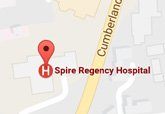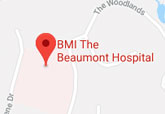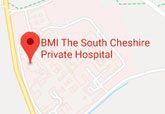Cervical Foraminotomy
Cervical foraminotomy is an operative procedure to relieve the symptoms of pinched nerve by expanding the neural foramen. It can also be done through a minimal invasive approach.
The neural foramen is an opening for the nerve roots to exit from the spine and travel throughout the body. It forms a protective passageway for nerves that transmit signals among the spinal cord and the rest of the body parts. A cervical foraminotomy is a surgical procedure that enlarges the neural foramen or passageway.
Modern cervical foraminotomy is a minimally invasive procedure in which muscle fibres surrounding the spine are separated without cutting and stripping the muscles from the spine region, unlike the conventional open spine surgery which requires spine muscles to be cut or stripped.
Who requires this procedure?
Conditions such as herniated discs, bone spurs, and thickened ligaments or joints can narrow the neural foramen and pinch the spinal nerves. A pinched nerve in the neck region can cause neck pain, stiffness and/or pain, tingling sensation, numbness or weakness that radiates down to the arm and hand. Patients with these symptoms who fail to show improvement with non-surgical therapy require cervical foraminotomy procedure.
How is the procedure performed?
Procedure
The procedure is done with the patients resting on their stomach.
Decompression
Your surgeon makes a small incision on the symptomatic side of your neck and approaches the spine by bringing the neck muscles apart using a tubular retractor. Then, the bone or disc material and/or the thickened ligaments are removed relieving the pressure on spinal nerve structures creating decompression. Afterwards, the neck muscles are brought back by removing the tubular retractor.
Closure
After the procedure, your surgeon closes the incision which might develop into a small scar.
After the procedure
Since the procedure is minimally invasive, most of the patients can be discharged on the day of surgery itself, but some patients may need a longer hospital stay. After surgery, the pain symptoms may improve immediately or gradually over the course of time. Compliance with your surgeon’s post-operative instructions may give a better outcome. You will be able to resume your daily activities within a few weeks.




